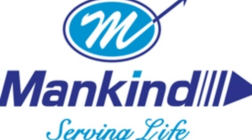Fearing misuse of new TB drugs could lead to more cases of drug-resistant tuberculosis, the Health Ministry constitutes an expert committee to finalise protocols for new drug usage
Fearing misuse of new TB drugs could lead to more cases of drug-resistant tuberculosis, the Health Ministry constitutes an expert committee to finalise protocols for new drug usage
With several new drugs for treating tuberculosis expected to hit the market in the coming years, the Union Ministry of Health and Family Welfare has constituted a high level committee to discuss the way forward on the use of these drugs in India. This comes subsequent to the approval of a new anti TB drug — Bedaquilline by the US-FDA.
The expert committee, chaired by V.M. Katoch, Director General of Indian Council for Medical Research, also comprises public health experts.
With the incidence of drug-resistant tuberculosis increasing in India, there is a growing concern over the possible misuse of the new drug which, if sold in the open market, could result in more resistance. While there is no time frame for finalising the guidelines on the use of new TB drugs, the committee does not have any formal terms of references either.
Lately, health activists have been demanding restrictions on the use of TB drugs in the private sector and to ensure access in the public sector under strict protocol. They are also demanding that the new drugs be procured for ‘compassionate use’ on those patients who are resistant to regular drugs. Sale of these drugs in the open market, the activists fear, could result in more drug resistant cases of tuberculosis.
According to the World Health Organisation report of 2012, India had an estimated 63,000 cases of notified multi-drug resistant tuberculosis (MDR-TB) in 2010, the highest in the South East Asia region.
The MDR-TB prevalence is estimated to be 2.3 per cent among new cases and 12-17 per cent among re-treatment cases. However, due to the size of the population and the number of TB cases reported annually, India ranks second among the 27 MDR-TB high-burden countries worldwide after China.
Activists point out that the current directive on Oseltamivir, for example, from the government, restricts companies from making the drug available in the open market through chemists and pharmacies that are either standalone or part of a private hospital. Oseltamivir or Tamiflu is used for treating severe cases of H1N1 influenza.
Companies and wholesalers are allowed to sell only to government hospitals or directly to the government. Similarly, South Africa, Brazil and other countries strictly regulate TB drugs through the public sector.
In India, drugs to treat both drug-susceptible TB and DR-TB are available over the counter in the private market. Patients are left to purchase such drugs out of pocket, often not able to afford all the drugs in the regimen or the full treatment course, which can have a hugely negative impact, fuelling further drug resistance.
With a population of about 1.2 billion, India is the largest country in the region and the largest TB burden country in the world in terms of absolute numbers of incident cases that emerge each year and it contributed one-fourth of the estimated global TB cases in 2010. Over 3.3 lakh people die of TB every year.
According to a report “DR-TB Drugs Under the Microscope” by Medecins Sans Frontieres and International Union Against Tuberculosis and Lung Diseases, with the market for Drug Resistant-TB drugs largely concentrated in BRICS countries — Russia, India and China account for 60 per cent of all notified DR-TB cases among the 22 high burden countries, procurement decision made in these countries will have a considerable impact on the future shape of the market. If they are committed to meet WHO quality standards, global demand for these would be consolidated.
Though curable, TB kills at least 130,000 children each year globally, making it one of the top 10 causes of death in children. There are also rising numbers of children who are infected with drug-resistant forms of TB which require complex treatment.
According to MSF report “Out of the Dark — Meeting the Needs of Children with TB”, paediatric TB is a neglected disease. Insufficient research and development attention has led to a lack of diagnostic methods adapted for children’s needs and a lack of appropriate drug formulations for children. This, in turn, has contributed to a situation in which TB programmes often under-diagnose, under-treat or omit altogether children with TB.











